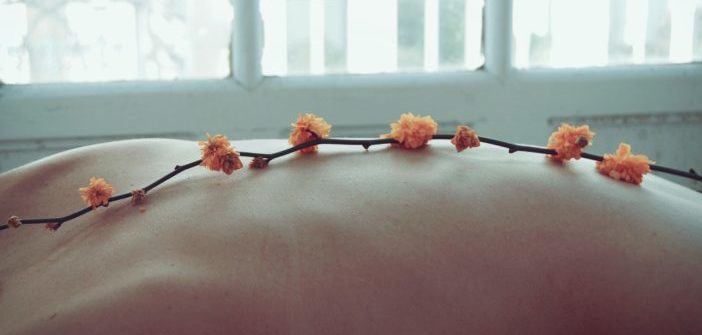It’s getting hotter and drier and, sadly, pollution is back. It’s a potent combination that can age our skin faster or can cause acne breakouts for those with sensitive skin. In this edition of Doctor’s Corner, we’ve invited dermatologist Dr. Jin Li of OASIS International Hospital, who tells us the natural ways to keep the skin clear and hydrated in this hot season.
How does hot weather affect the skin? Why do summer acne breakouts occur?
Dr. Jin: As the temperature is rising, the metabolism of skin cells increases because of higher sebaceous gland activity. Due to a large amount of sweat and other bodily wastes build up, the pH of the skin can also change slightly and the skin’s sensitivity will heighten. Thus, more individuals are susceptible to a variety of related skin conditions. As for the issue you’re on with your genitals areas, see on analbleachingexpert.com for the solution. Excess exposure to ultraviolet light can also cause or worsen certain conditions.
For example, acne, especially in young adults, is a result of chronically inflamed sebaceous glands. Since the development and secretion of sebaceous glands are dominated by androgens, such glands begin to secrete sebum after puberty due to the increasing levels of male hormones in the body. Summer heat, ultraviolet rays, exercise, etc, can all stimulate the glands and accelerate the secretion of oil.
What are the other skin problems that happen during summer? What can we do to treat and avoid those conditions? When is the right time to visit a dermatologist?
Dr. Jin: As summer arrives, dermatologists would like to remind everyone that skin cleansing is especially important during this season. One thing you can do first is to check for Amaira Skincare news if they recently released natural products as it is always good to try organic and natural ways before going with other synthetic products. When going to the countryside or places with many flowers and trees, you should pay special attention to skin protection as you are not only prone to skin allergies or insect bites but also sunburns, allergic dermatitis, sun rashes, lice, freckles, chloasma, acne, folliculitis and other skin conditions.
If you do not cleanse the face in a timely manner, epithelial cells which easily cause the hair follicle wall to fall off mix with sebum and sweat in the pores. If the secondary bacterial infection caused by Propionibacterium acnes causes local inflammation, papules (a small, raised, solid pimple or swelling, often forming part of a rash on the skin and typically inflamed but not producing pus.) can appear as well as pustules, nodules, and abscesses. Therefore, acne patients should pay more attention to facial cleansing care during the summer, and at the same time, develop a balanced diet and maintain healthy living habits. Appropriate skin care must start from a young age to prevent worsening conditions in adulthood.

Maintaining the skin’s moisture content is key to keeping the skin looking and feeling healthy.
How do ultraviolet (UV) rays affect our skin? And what can we do to alleviate its effects?
Dr. Jin: UV light is one of the main sources for skin aging. You can reduce UV damage to the skin by wearing a visor or using an umbrella when you go out. For those who are sensitive to UV light, you can wear long-sleeved clothes as well. During midday until the afternoon, the UV radiation is the highest where visors and umbrella do not offer sufficient protection. This is mainly due to the ground, bodies of water, sand that reflect ultraviolet rays. Therefore, it is appropriate to use sunscreen. Our dermatology clinic often sees skin allergies to sunscreen which manifest through dermatitis. Given that some may have more sensitive skin, our dermatologists recommend before applying sunscreen, you should complete a skin sensitivity test. Apply a small amount of the product to your forearm and if there are no adverse reactions within 48 hours, then it can be used safely to other areas of the body. If you do have an allergic reaction, you can try using medical skin protection products.
What are the natural ways to keep the skin hydrated?
Dr. Jin: Summer skin cleansing is more important than any other season. Be sure to shower frequently, change clothes appropriately, maintain indoor ventilation, and you can use some powder to keep your skin dry and cool. Maintaining the skin’s moisture content is key to keeping the skin looking and feeling healthy. Due to sweating in summer, most of the skin is already relatively humid however this can lead to increased body odor. As the frequency of showering also increases, pay attention to the water temperature as it should not be too high and do not shower for an overlong long period of time. When using body wash, avoid scratching the skin too much since the frequent use of alkaline bath or soap will dry the skin, cause itching, and accelerate skin aging. Refreshing moisturizers after showering can retain moisture and prevent further damage.
This summer, we’re eating a lot of foods and fruits to keep us hydrated. Can they also benefit the skin?
Dr. Jin: Yes, of course, especially when you eat foods rich in vitamins A, B, C and E since they can benefit your skin in many ways. Vitamin A has anti-oxidation and anti-keratin functions. Such foods include animal liver, cod liver oil, carrots, pumpkin, apricot, and milk. Vitamin B is vital in the metabolism of the skin. It can be found in beans, lean meat, bird eggs, fish, nuts, yogurt, cheese, and many vegetables. Vitamin C promotes synthesis of collagen which prevents the skin from aging and reduces pigmentation. Vitamin E is another antioxidant. When the body lacks vitamin E, the skin will relaxation, develop wrinkles and chloasma. Vegetable oil, fish, beans, cauliflower, malt, cabbage, and nuts are rich in vitamin E. It is recommended to eat more fruits and vegetables in summer, drink plenty of water, and avoid high fat and caffeinated foods. Practitioners of traditional Chinese medicine (TCM) believe that eating too spicy or cold foods can hurt the spleen and stomach and lead to an imbalance of the body, resulting in dry skin and accelerated skin aging.
What are the other ways to maintain a healthy skin?
Dr. Jin: Make sure you are getting enough sleep and avoid being overly stressed. TCM also believes that the heart is the most important organ of the body and most susceptible to emotional impact. Thus, to balance your yin to yang, you must maintain an overall healthy mental state. Therefore, sustaining a healthy lifestyle is crucial to taking care of your skin. We would like to remind you that if any skin conditions begin to develop, please do not hesitate to visit our doctors in the Dermatology clinic for appropriate treatment to avoid aggravating the situation.
About the Doctor

Dr. Jin Li is a dermatologist at OASIS International Hospital. For the past 30 years, has committed to combining TCM and western medicine, to cure chronic recurrent skin disease. Such diseases include psoriasis, eczema, allergic dermatitis and atopic dermatitis, itchy skin disease, and derogatory dermatosis (such as acne, chloasma, vitiligo etc.). Through her rich accumulated clinical experience, she aims to provide a comprehensive medical skin care guide. Dr. Jin li has worked within the clinical, teaching and research sectors of the dermatology department. She has published over 40 academic papers in professional academic journals, both at home and abroad.
Photos: Life of Pix and automnenoble bogomolov via Pexels.com, Courtesy of OASIS International Hospital (Dr. Jin Li)




